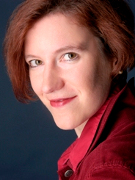Prof. Dr. Marianne Hirschberg

Senior Research Fellow
BIOGUM Medizin
Address
Contact
Key aspects of activity
- Disability Studies
- Sociology of disability
- Intersectionality
- Discourse analysis of disability classification
- Analysis of the historical development of classification systems of illness and disability
- Theoretical construction of disability
- Human rights and disability
- Conceptualisation of the lived reality of people with disabilities, between participation and stigmatisation
- Consequences of genetic diagnosis for society
Fields of Work
- Human rights and disability
- Disability Studies
- Sociology of disability
- Intersectionality
- konzeptionelle Überschneidungen zwischen Krankheit, chronischer Erkrankung und Behinderung
- Discourse analysis of disability classification
- Analysis of the historical development of classification systems of illness and disability
- Theoretical construction of disability
- Human rights and disability
- Conceptualisation of the lived reality of people with disabilities, between participation and stigmatisation
- Consequences of genetic diagnosis for society
Professional Background
Curriculum Vitae
- Affiliated Researcher at the Centre for Biotechnology, Society and the Environment (FSP BIOGUM), Medicine/Neurosciences, University of Hamburg (10/2002-03/2009)
- PhD Studies in philosophy at the Department of Rehabilitation Sciences (2002-2008), Jointly with the Centre for Biotechnology, Society and the Environment, University of Hamburg, and the Faculty for the Studies of Rehabilitation, Technical University of Dortmund. Title: Classifying Disability. Discourse Analysis of the International Classification of Functioning, Disability and Health (ICF) [Klassifizierung von Behinderung. Diskursanalytische Untersuchung der International Classification of Functioning, Disability and Health (ICF) der Weltgesundheitsorganisation]. Submitted 10.10.2008, Viva 04.02.2009; published 11/2009
- Teacher in ‘inclusive classes’ at a comprehensive school, Hamburg (08/2003-03/2009)
- Senior Researcher of the Institut Mensch, Ethik und Wissenschaft (IMEW), Berlin (03/2009-08/2009)
- Lecturer for Disability Studies, Faculty of Humanities, University for Applied Sciences Magedeburg-Stendal, Stendal (10/2009-02-2010)
- Lecturer for Scientific English, main focus on Disability Studies, and the social model of disability, as part of the Bachelor of Nursing, Protestant University for Applied Sciences, Berlin (05/2009-present)
- Senior Researcher for Social Research and Policy, CRPD national monitoring mechanism, German Institute for Human Rights, Berlin (09/2009-present)
- 2nd state exam in Inclusive and Special Education and Theology (16.12.2004)
- Research Associate on the research project ‘Humanism in the 19th and 20th Centuries’, Institute for Historical Educational Science, Helmut-Schmidt University, Hamburg (2001-2003)
- Personnel advisory service, Human Resources Consulting at relationfactory gmbh, Hamburg (10/2000-03/2001)
- Intercultural Studies, Univer
sity of Hamburg (1999-2000) - 1st state exam in Inclusive and Special Education and Theology (23.06.1999)
- Irish Society, Irish Studies and Education, Un
iversity of Limerick, Limerick, Ireland
(1995-1996) - Studies of Inclusive and Special Education, Sociology of Disability, Educational Science and Theology (1993 to 1999), University of Hamburg, Germany
Publications
Hirschberg, Marianne (2009): Behinderung im internationalen Diskurs. Die flexible Klassifizierung der Weltgesundheitsorganisation, Campus, Frankfurt/Main
Hirschberg, Marianne (2009): Rezension von: Kollek, Regine/Lemke, Thomas: Der medizinische Blick in die Zukunft. Gesellschaftliche Implikationen prädiktiver Gentests, Campus, Frankfurt/Main 2008, In: Das Argument, 282, 4
Hirschberg, Marianne (2009): Rezension von: Wolf, Caroline: Gegner oder Verbündete im Lebensschutz? Die Entwicklung ethischer Positionen deutscher Humangenetiker und der Bundesvereinigung Lebenshilfe im Vergleich, Mabuse, Frankfurt/Main 2008, In: Teilhabe, 4
Hirschberg, Marianne (2009): Behindert – wird man. Die soziale Dimension von Behinderung, In: Orientierung, 3, S. 17-19
Hirschberg, Marianne (2009): Klassifizierung von Behinderung/Classification of disability, IMEW konkret Nr. 12, Berlin, Online Version ISSN 1612-9997
Hirschberg, Marianne (2009): Rezension von: Graumann, Sigrid/Schneider, Ingrid (Hg.): Verkörperte Technik – Entkörperte Frau. Biopolitik und Geschlecht, Campus, Frankfurt/Main 2003, In: Vierteljahresschrift für Heilpädagogik und ihre Nachbargebiete, 3
Hirschberg, Marianne (2007): Gesellschaftliche Partizipation behinderter Menschen – ihr Stellenwert in der WHO-Klassifikation. In: Die Natur der Gesellschaft. Verhandlungen des 33. Kongresses der Deutschen Gesellschaft für Soziologie in Kassel 2006. Herausgegeben in deren Auftrag von Karl-Siegbert Rehberg. CD-Rom, Frankfurt/Main
Hirschberg, M. (2006). Classifying of disability. Discourse Analysis of the International Classification of Functioning, Disability and Health (ICF). WHO Family of International Classifications (FIC) Newsletter 4 (2), 7.
Hirschberg, M. (2006). Rezension von: Felix Welti (2005). Behinderung und Rehabilitation im sozialen Rechtsstaat. Freiheit, Gleichheit und Teilhabe behinderter Menschen, Tübingen: Mohr Siebeck, Sonderpädagogische Förderung. Integration und pädagogische Rehabilitation 51 (1), 105-106.
Hirschberg, M. (2004). Rezension von: Anke Grotlüschen (2003). Widerständiges Lernen im Web – virtuell selbstbestimmt? Eine qualitative Studie über E-Learning in der beruflichen Erwachsenenbildung, Münster: Waxmann, Das Argument 255 (2), 316-317.
Hirschberg, M. (2003). Ist Behinderung normal? Vorstellung von Behinderung in der Internationalen Klassifikation der Funktionsfähigkeit, Behinderung und Gesundheit (ICF). In Anne Waldschmidt (Hg.), Kulturwissenschaftliche Perspektiven der Disability Studies: Tagungsdokumentation. Kassel: bifos, 117-128.
Hirschberg, M. (2003). Wie wird Behinderung beurteilt? – Anmerkungen zum Menschenbild der Internationalen Klassifikation von Behinderung der Weltgesundheitsorganisation. EWI-Report. Nachrichten und Kommentare aus dem Fachbereich Erziehungswissenschaft der Universität Hamburg 28, 17-21.
Hirschberg, M. (2003). Die Klassifikationen von Behinderung der WHO. IMEW-Expertise I Berlin: Institut Mensch, Ethik und Wissenschaft, 2. Auflage 2004, 3. Auflage 2005.
Hirschberg, M. (2003). Ambivalenzen in der Klassifizierung von Behinderung. Anmerkungen zur Internationalen Klassifikation der Funktionsfähigkeit, Behinderung und Gesundheit der Weltgesundheitsorganisation. Zeitschrift für Ethik in der Medizin 15 (3), 171-179.
Hirschberg, M. (2003). Klassifikation und Normierung – eine Analyse der Internationalen Klassifikation der Funktionsfähigkeit, Behinderung und Gesundheit (ICF) der Weltgesundheitsorganisation, In Sigrid Graumann/Katrin Grüber (Hg.), Medizin, Ethik und Behinderung. Beiträge aus dem Institut Mensch, Ethik und Wissenschaft, Frankfurt/Main: Mabuse, 55-71.
Hirschberg, M. (2003). Rezension von: Ingrid Lohmann/ Rainer Rilling (Hg.) (2002). Die verkaufte Bildung. Kritik und Kontroversen zu Kommerzialisierung von Schule, Weiterbildung, Erziehung und Wissenschaft. Opladen: Leske+Budrich, Zeitschrift für Bildungsverwaltung 1, 112-114.
Hirschberg, M. (2002). Rezension von: Andreas Lösch (2001). Genomprojekt und Moderne. Soziologische Analysen des bioethischen Diskurses. Frankfurt/Main: Campus, Der mathematisch-naturwissenschaftliche Unterricht 55, 5.